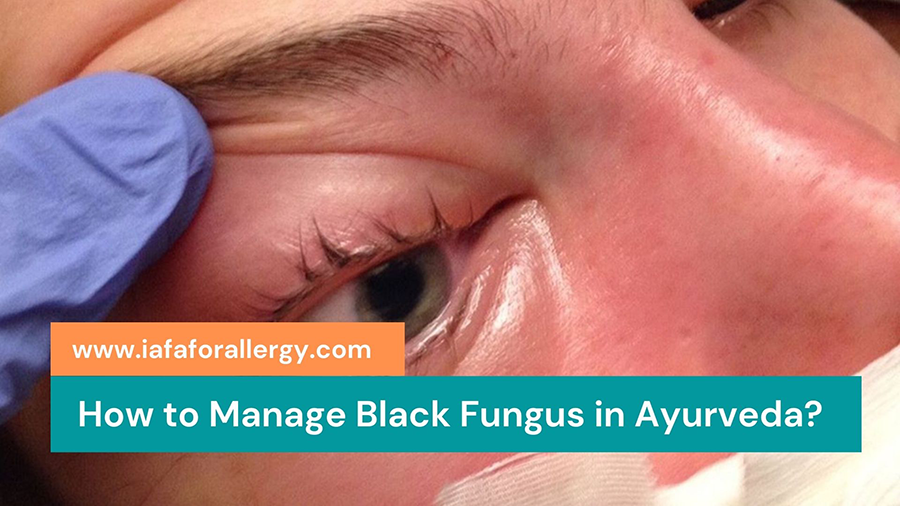Black Fungus Infection came to light during the second wave of the pandemic coronavirus disease. With the world already reeling under the throes of coronavirus disease, we now have to contend with another hitherto not so common opportunistic foe, mucormycosis, commonly known as black fungus infection. Due to COVID outbreak, black fungus infection is becoming common.
What is a Fungus?
Fungi are ubiquitous in nature and are found in soil, plants, decaying organic matter, air, water, damp places and also in humans and animals. They play a very important role in our ecosystem as they degrade the organic matter into simpler forms for the consumption of plants. There are about 1,44,000 species of fungi.
Generally, some types of fungi don’t cause any infection in humans but can cause sickness in immunocompromised patients.
What is Black Fungus Infection?
Black Fungus Infection is a serious but rare fungal infection caused by a group of moulds. Rhino-orbital-cerebral-mucormycosis is caused by the moulds of the order Mucorales. These fungi invade the surrounding blood vessels and destroy them. These moulds live in the environment and their spores are present in the air. They get lodged in the nasal cavity and the adjoining sinuses.
Why it is Occurring in COVID-19 Patients?
COVID-19 damages the airway mucosa and bleed vessels. Medications like steroids increase blood sugar levels. Long-term ventilation reduces immunity and there are speculations of the fungus being transmitted by the humidifier. All the factors are favourable for the growth of black fungus in COVID-19 patients.
People prone to infections are the ones who are undergoing oxygen therapy in ICU, where humidifier is used, which makes the people prone to black fungus infection due to exposure to moisture.
Spores can sometimes travel into the depths of the respiratory system and get lodged in the lung parenchyma (alveoli and bronchioles). Here the fungi grow rapidly and comprising blood oxygenation. From there it can circulate into the circulatory system which results in an existential-crises.
Is Black Fungus Contagious?
The disease is not contagious and does not spread from one person to another.
What are the Symptoms of Black Fungus Infection?
- Nasal blockage, discharge from the nose and bleeding are the initial features of mucormycosis.
- When the orbit is involved, there will be proptosis (protrusion of eyeball), loss of movements of eyeball with consequent double vision, eye pain, redness and even blindness.
- If the brain is invaded due to blood vessel blockage, there will be headache, stroke, drowsiness, limb weakness, seizures and even death.
In lung mucormycosis, clinical features are similar to COVID-19 with fever, cough, shortness of breath which makes the diagnosis difficult.
How Black Fungus is Diagnosed?
On endoscopic visualization of the nasal cavity, a black eschar (slough or dead tissue) coated masses will be present which confirms the diagnosis.
As the disease progresses, the palate may be destroyed as large black necrotic mass may be seen on opening the mouth.
Who is Susceptible to Black Fungus Infection?
People with reduced immune response are more susceptible to infection. Conditions that reduce immunity include:
- High blood sugar levels with an acidic environment as seen in diabetic ketoacidosis is the suitable environment for the fungi to grow. Diabetes is also associated with reduced immune response.
- Blood malignancies also results in compromised immune system.
- The use of steroids increases blood sugar levels and decreases the immune response of the body.
- Patients who are taking deferoxamine or excess iron.
How Black Fungus Infection is Treated in Ayurveda?
It is a multi-pronged approach where time is the essence. Monitoring blood sugar level regularly post-recovery can also help in its prevention. Black fungus cases need special care and ayurvedic treatment is likely to help strengthen the individual’s immunity and help them to fight against the disease.
Ayurvedic treatment of black fungus infection could be used as prophylactics for COVID-19 patients to help boost their immunity and possibly help in preventing subsequent black fungus infections among those vulnerable to the disease.
You can use IAFA Nasal All clear Spray, IAFA Nasal Air, and IAFA Nasal All Clear X Drops to prevent black fungus infection. For more information, you can consult our experts online.








